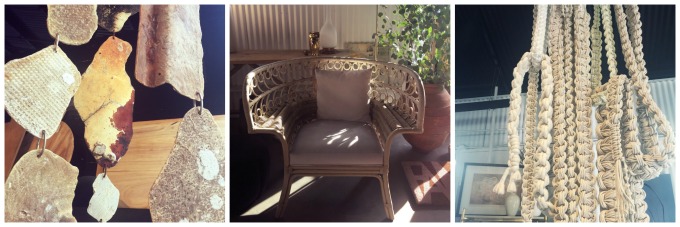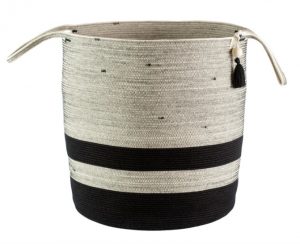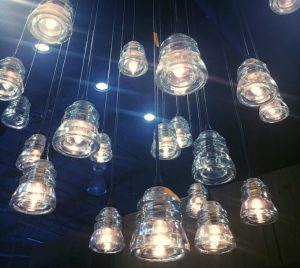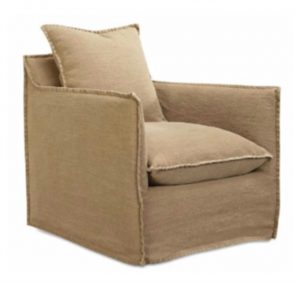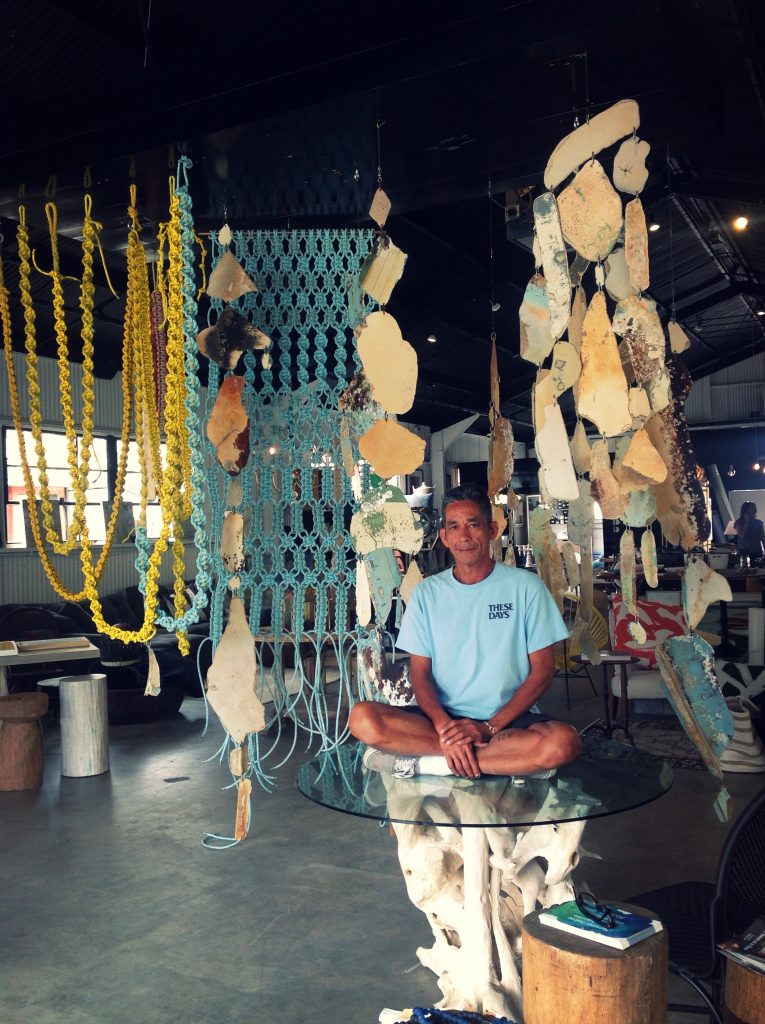
Furniture and home decor made from recycled or otherwise sustainable materials continue to grow in popularity and availability, providing ample opportunities to decorate in a way that’s both stylish and eco-conscious.
By Cassandra Reinhart
It used to be that repurposing decor and home furnishings was relegated to those labeled tree-huggers, making a social statement against the waste of the mass-produced and disposable culture of our times. Today, using reclaimed woods, upcycled materials and organic cotton upholstery in home building and decor is considered chic, and it’s embraced by more and more designers.
Sustainable and repurposed materials often add a uniqueness to home decor, in addition to helping keep the earth green. From reclaimed wood to quick-growing bamboo, there are plenty of options available to lessen your carbon footprint. And you don’t have to look far. Sustainable home materials are everywhere—and growing in popularity. But for many consumers, it’s not only choosing where to shop but finding those special pieces that most closely reflect their eco-conscious convictions.
Sustainably Seated
Both larger furniture companies like CISCO Home—which has a store at South Coast Collection in Costa Mesa—and smaller design studios are finding fresh ways to repurpose and also retain environmental sustainability with new products offered.
“In the past, all people cared about was that it was comfortable,” says Rosie Pinedo, manager of the Costa Mesa CISCO Home store. “Now, they actually ask more questions and do more research.”
Consumers are actively sourcing the safest options to have in their home, including using furniture made of Forest Stewardship Council-certified wood from responsibly managed forests. CISCO only uses furniture wood stains with low-VOC ratings, meaning fewer toxins get released into the air. The company also incorporates recycled materials into its furniture pieces and upholsters with organic fabrics.
“Most of our fabrics are 100 percent cotton or linen, and we make everything local, which is good,” Pinedo says.
Bliss Home & Design in Corona Del Mar also offers sustainable options such as cushions that incorporate soy, upholstery woven with recycled plastic fibers, as well as FSC-certified wood panels and organic fabric. Assistant Manager Erica Barry says the Lee Industries sofas sold by the store feature the brand’s naturalLee BiOH poly core. This is a renewable soy-based foam that takes the place of 30 percent of petroleum-based ingredients found in typical cushions. All of the Lee products sold at Bliss Home & Design are also flame-retardant free, Barry notes.
In the Bliss shop, Old World charm and modern styling fuse with materials that put one’s mind at ease and help to create tranquil spaces. Creamy woven poufs, gilded mirrors and lazily draped sea glass beads bring life to a pile of antique books. A petrified wood section mounted on a stand is elevated to art, as organic beauty mingles with modern sofas and mid-century accents.
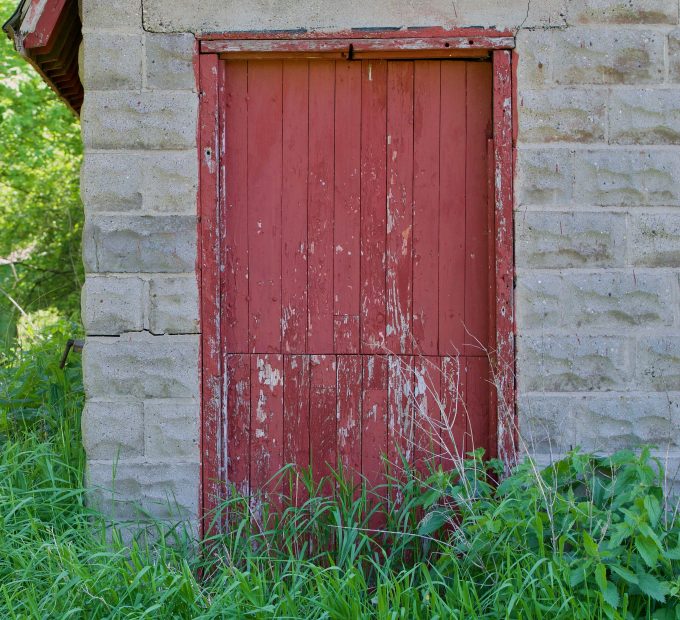
Into the Woods
When it comes to wood furniture, pieces made from FSC-certified trees are just the edge of the forest in the sustainable lumber category, which can include reclaimed planks from old barn doors and the like as well as easily renewable species grown in an environmentally conscious way. From Burmese teak to monkeypod or a reclaimed 200-year-old French walnut planted by a U.S. general, Tom Flynn of Costa Mesa’s Reclaimed Woods of the World doesn’t just sell sustainable wood, he sells a story.
“We got a giant redwood sequoia that is 25 feet in diameter, 280 feet long and 3,000 years old,” Flynn says. “One hunk of wood. [So,] let us put it to a higher and better use.”
Flynn, president of Reclaimed Woods of the World, offers environmentally friendly woods for small- or large-scale indoor or outdoor projects designed to have a carbon footprint that is as small as possible. Recently, there has been a big movement to try to find a substitute for tropical hardwoods, as these have traditionally been the only wood that can stand up to the outdoors. A typical teak tree can grow to more than 100 feet tall, but only 50 feet of it is used after being harvested, causing a substantial waste before it even leaves the jungle. Reclaimed Woods of the World is using a new method to superheat less-desirable woods to 420 degrees to cook the sugars out, leaving the wood resistant to bugs and water.
“We can take a regular species and cook it and all of a sudden you have got this teak-like wood,” Flynn says. “That has been a huge breakthrough to come up with a substitute wood product that’s not only as good as the real thing, it’s better.”
Another recent technology, called Recon, imprints a photographic grain onto bleached Italian poplar plywood to create a range of faux tropical hardwood finishes. Flynn is pioneering the project for use on doors for Four Seasons Hotels and Resorts.
“I can make you an ebony, a teak, a tiger wood or whatever and do it using … [different finishes] that are environmentally friendly,” Flynn says. “Poplar is a sustainable tree farm product, and nobody guesses it’s poplar.”
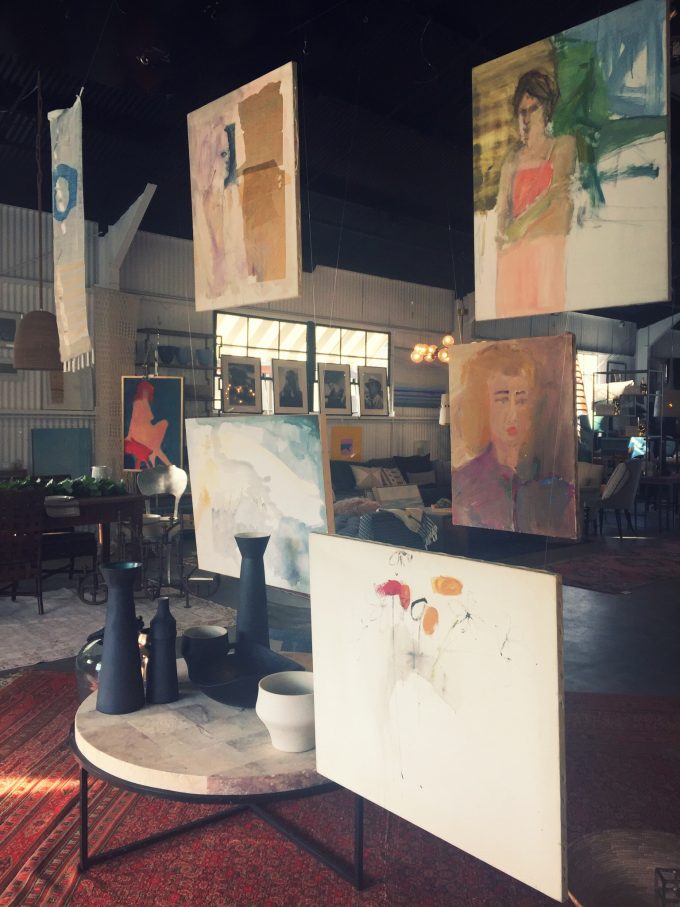
Lost and Found
Reclaimed Woods of the World started selling reclaimed wood after finding old World War II logs left behind by the Japanese at sawmills raided for their metal. Giving new life to found items is also the approach by artist Jim Olarte, who looks to local beaches for inspiration to make sustainable art. At Newport Beach design gallery 503 Found, Olarte’s striking mobiles contribute to the gallery’s curated collection of urban chic. His mobiles, made of giant pieces of shipwrecked fiberglass boats, sway center stage in a sunlit window.
“All this fiberglass … is collected from the five coves at Cameo Shores,” Olarte says. “I beachcomb constantly. It is so Orange County.”
Olarte also collects lobster trap rope on the beaches and makes sculptures out of those as well, and is now working on brightly colored art installations made out of old computer cords. His signature, large-scale macrame hanging art pieces—created with ivory cotton piping or welting—drape heavily from the ceiling of 503 Found, which offers an eclectic mix of vintage rugs, modern sofas and unique antiques.
“There is another artist that sells feathers and shells and makes table art out of them, and frames it,” says 503 Found co-owner Kim Rodosky. “Our rugs are all vintage,” she adds, noting a 150-year-old floor covering available for sale.
Baskets handmade by women in Africa line 503 Found’s showroom, made of natural raw materials like palm leaves, reeds or grass. Meanwhile, handmade African clay beaded chandeliers add an airy touch of raw romance to vintage art pieces, offset by an elaborate brass antique church candlestick holder.
“I think people should use antiques as everyday pieces, [like] chandeliers that are deconstructed and redone,” Rodosky says. “I just like to sell things that we love. I don’t like to follow trends.”
Green With Envy
These must-have sustainable products are a natural choice for home decor.
Made from 100 percent cotton rope and handcrafted in Africa, these HANDMADE AFRICAN FLOOR BASKETS add an elegant yet earthy texture to any room, and can be used to store laundry, towels or children’s toys, $175, at 503 Found. (949-877-0147; 503found.com)
Create your own conversation starter with these modern glass INSULATOR PENDANT lights made of repurposed glass electrical insulators. Designed to order, you add as much or as little light to any room by choosing the pendant lengths and placements, price upon request, at Cisco Home, South Coast Collection, Costa Mesa. (714-432-1630; ciscohome.net)
Made with soft Eco-Lux seating—50 percent down and 50 percent Ingeo fiber (made from a polymer derived from plants that capture greenhouse gases)—this sustainable OUTDOOR SWIVEL ARMCHAIR by Lee Industries instantly infuses natural elegance in any space. Custom upholstery and cushion options are available to match your style, from $1,751, at Bliss Home & Design, Corona del Mar. (949-566-0380; blisshomeanddesign.com)


